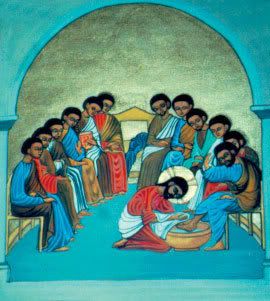
A great review of oral transmission within the gospels can be found in James D.G. Dunn's Jesus Remembered. p. 192-210 is a useful review of the progress from the form critics to now, and from 210ff he makes some proposals about the synoptics and oral narratives.
Personally, I find the work of Birger Gerhardsson quite well done and would recommend the relatively small book The Reliability of the Gospel Tradition for those interested in early Christian oral transmission. Richard Bauckham's Jesus and the Eyewitnesses: The Gospels as Eyewitness Testimony is very interesting and has opened (or in other cases, reopened) discussions.
For anyone interested, I think journal articles are probably easier to obtain, some of which do not require database access:
- P.M. Head, “The Role of Eyewitnesses in the Formation of the Gospel Tradition”, Tyndale Bulletin vol. 52 no. 2, 2001, p. 275ff *
- Michael F. Bird, “The Purpose and Preservation of the Jesus Tradition”, B.B.R. 15.2, 2005, pp. 161-185.*
- , K.E. Bailey, “Informal Controlled Oral Tradition and the Synoptic Gospels”, Themelios, vol. 20 no. 2, 1995, pp. 4-11.*
- James .D.G. Dunn, “Altering the Default Setting: Re-envisaging the Early Transmission of the Jesus Tradition”, New Testament Studies. vol. 49, 2003, pp. 139-175.
from the Dunn article above: Abstract
The literary mindset (‘default setting’) of modern Western culture prevents those trained in that culture from recognizing that oral cultures operate differently. The classic solution to the Synoptic problem, and the chief alternatives, have envisaged the relationships between the Gospel traditions in almost exclusively literary terms. But the earliest phase of transmission of the Jesus tradition was without doubt predominantly by word of mouth. And recent studies of oral cultures provide several characteristic features of oral tradition. Much of the Synoptic tradition, even in its present form, reflects in particular the combination of stability and flexibility so characteristic of the performances of oral tradition. Re-envisaging the early transmission of the Jesus tradition therefore requires us to recognize that the literary paradigm (including a clearly delineated Q document) is too restrictive in the range of possible explanations it offers for the diverse/divergent character of Synoptic parallels. Variation in detail may simply attest the character of oral performance rather than constituting evidence of literary redaction.